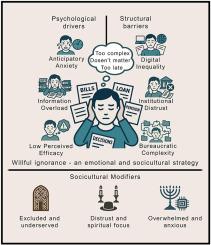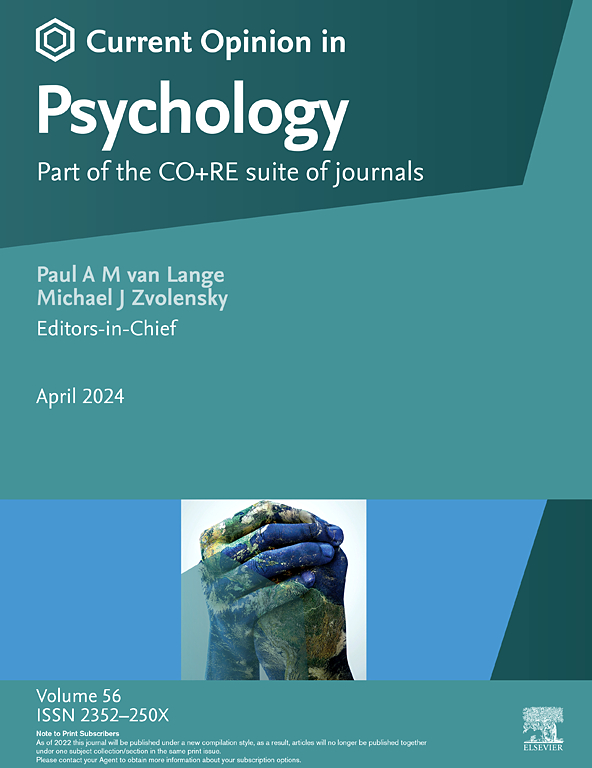选择不知道:养老的情感和社会文化结构故意无知
IF 6.9
2区 心理学
Q1 PSYCHOLOGY, MULTIDISCIPLINARY
引用次数: 0
摘要
故意无知是有动机地回避信息。这种强烈的行为倾向通常可以通过自我形象保护、情绪调节和道德宽容等个人心理机制来解释。然而,现有的理论低估了社会、文化和制度背景,这些背景从根本上塑造了人们选择不知道的东西。利用现有文献和以色列三个主要社会文化群体的养老金计划的跨文化数据,我们证明了故意无知通常是一种社会嵌入的实践,而不仅仅是一种个人偏见。对于边缘社区来说,这种回避可能是对结构性障碍、不信任和文化失调的适应性反应。为了解释这些动态,我们提出了故意无知的社会文化建筑模型。这一综合框架将故意无知的意义和适应功能概念化,认为它是个体、情感、文化和结构因素相互作用的结果。解决这些因素对于设计能够真正包容所有人的干预措施至关重要。本文章由计算机程序翻译,如有差异,请以英文原文为准。

Choosing not to know: The emotional and sociocultural architecture of pension willful ignorance
Willful ignorance is the motivated avoidance of information. This robust behavioral tendency is typically explained through individual psychological mechanisms like self-image protection, emotional regulation, and moral leniency. However, existing theories underemphasize the social, cultural, and institutional contexts that fundamentally shape what people choose not to know. Drawing on extant literature and cross-cultural data from pension planning in Israel's three primary sociocultural groups, we demonstrate that willful ignorance often functions as a socially embedded practice, not merely an individual bias. For marginalized communities, such avoidance may represent adaptive responses to structural barriers, distrust, and cultural misalignment. To account for these dynamics, we propose the Sociocultural Architecture Model of Willful Ignorance. This integrative framework conceptualizes the meaning and adaptive function of willful ignorance as emerging from the interplay of individual, emotional, cultural, and structural factors. Addressing these factors is crucial for designing interventions that provide genuine inclusion for all.
求助全文
通过发布文献求助,成功后即可免费获取论文全文。
去求助
来源期刊

Current Opinion in Psychology
PSYCHOLOGY, MULTIDISCIPLINARY-
CiteScore
12.10
自引率
3.40%
发文量
293
审稿时长
53 days
期刊介绍:
Current Opinion in Psychology is part of the Current Opinion and Research (CO+RE) suite of journals and is a companion to the primary research, open access journal, Current Research in Ecological and Social Psychology. CO+RE journals leverage the Current Opinion legacy of editorial excellence, high-impact, and global reach to ensure they are a widely-read resource that is integral to scientists' workflows.
Current Opinion in Psychology is divided into themed sections, some of which may be reviewed on an annual basis if appropriate. The amount of space devoted to each section is related to its importance. The topics covered will include:
* Biological psychology
* Clinical psychology
* Cognitive psychology
* Community psychology
* Comparative psychology
* Developmental psychology
* Educational psychology
* Environmental psychology
* Evolutionary psychology
* Health psychology
* Neuropsychology
* Personality psychology
* Social psychology
 求助内容:
求助内容: 应助结果提醒方式:
应助结果提醒方式:


